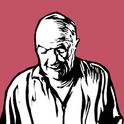Departmental questions are not like Prime Minister's questions. PMQs are a torrid rumbustious affair, with noise, flack, catcalling and worse. In addition to this, the big exchange tends to come early on in proceedings. The Leader of the Opposition will stand early in the half hour slot and stick it to the Prime Minister, bringing the chamber to full blast almost immediately.
Not so in departmental questions. There is a different rhythm to these sessions. Unlike the frenzy of PMQs, departmental questions start with back-benchers quizzing junior ministers. In this way it is something of a proving ground for young talent.
And while the early exchanges of Education questions were under way, the big beasts sat, eyeing one another. On the government front bench, the Secretary of State himself—Michael Gove, detested by his opponents in the Labour Party for being so... so effective. It is getting to the stage now where his education reforms are beginning to look irreversible. Nothing puts the wind up an opponent quite like success. And there he sat, a beast of some considerable size, purring on the front bench, legs crossed, slip-ons gleaming (identical to those favoured by the PM) jotting on the back of his order paper.
Opposite him, Tristram Hunt, the MP for Stoke, newly-promoted as Gove's opposite number, and around these two, the session groaned into life, the Speaker keeping things moving at a whip-crack pace through the opening exchanges. Barry Gardiner (Lab, Brent North) complained bitterly that there was a shortage of investment in primary school places in his borough, to which one Government Minister, David Laws, no less, now Minister of State for Schools, replied by saying that investment in primary education in the Borough was up by 240 per cent, since this government came to power.
Laws has a sharp, rather nasal tone, elbow on the Dispatch Box, his utterances barbed, as he informed another member of the opposition of the money being ploughed into schools. Andrew Selous (Cons SW Bedfordshire) then asked about Moocs, which he suggested were an excellent thing. Elizabeth Truss, Parliamentary Under Secretary of State for Education and Childcare, thanked Selous for the question on Moocs, and paid tribute to "the rise of the Moocs," in this country which for an instant called to mind an iffy '50s B Movie. (Moocs are of course "Massive Online Open Courses," whereby students can follow University courses over the internet.)
There followed further questions, on careers advice services and childcare provision—and finally Michael Gove was on his feet. "Oh—he's here!" shouted a wag on the opposition benches and the place fell about laughing. Such is the level of Parliamentary humour: the bar set so low as to make even the most elastic of limbo dancers blench. The opening question to Gove was on qualifications for teachers, and immediately upon his answer, the tone of the chamber adjusted. The Secretary of State likes to dominate. He is loud—very loud. Rhetoricians are often said to "soar," in their flights of oration. In contrast, Gove "saws," through proceedings. The voice is deceptively harsh, the tone caustic, but when he wants to he can soften it, to good effect. When Gisela Stuart stood (Lab, Edgbaston) to ask about teaching standards in her own city, Gove slathered her with praise, saying that he would far rather have her running the city's schools than he would Birmingham council. Stuart seemed to like the comment very much. In the gallery an old hand chewed his pen and coughed out a laugh. "Old Gove trick," he said. "Praise the Blairites."
Then came the exchange between Gove and Hunt. They do not appear to be on the best of terms. Hunt asked why students studying English would be excluded from access to classic English literature. To this Gove snapped back that nobody would be excluded form reading anything. Very curt. Hunt retorted by wondering why Gove was continuing to "dumb down," GCSEs and in doing so why he was denying youngsters the opportunity to benefit from a schooling that he, Gove, had himself enjoyed. In response, Gove's voice became gentle, his manner casual—two sure signs that the blade was about to be inserted swiftly between the shoulder blades. The Secretary of State pointed out that he had been educated in Scotland, where the GCSE does not hold sway. He then suggested that Mr Hunt—a noted historian—might consider switching subjects to Geography. The Government benches fell about in uncontrollable laughter. With this, the exchange was ended. It was nasty, brutish and short.
But perhaps the crowning moment of the session came towards its end. A Labour MP asked Gove about Dominic Cummings, a close aide to the Secretary of State, who recently wrote an extended paper on education policy in which he suggested that educational attainment might be attributable in part to genetic inheritance (a subject dealt with in a personal and revealing essay in this month's Prospect.) There were calls of "disgusting" from the Opposition benches at the mention of Cummings's work.
Gove answered with a quote, which he attributed to a "predecessor," in the role of Secretary of State for Education. "Advisers advise," he said, "but ministers decide," and with this he sat down to approving murmurs from his own benches, and chuntering from the Opposition. The name of that "predecessor"? Why, Margaret Thatcher, of course.
Education: the rise of the Moocs
November 11, 2013












